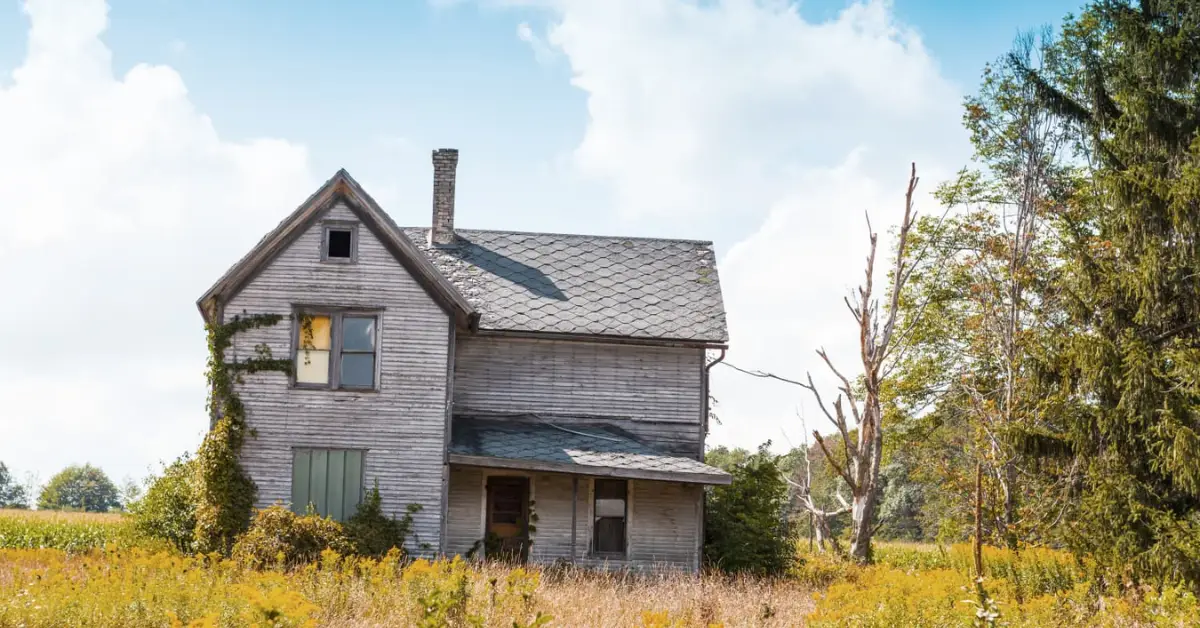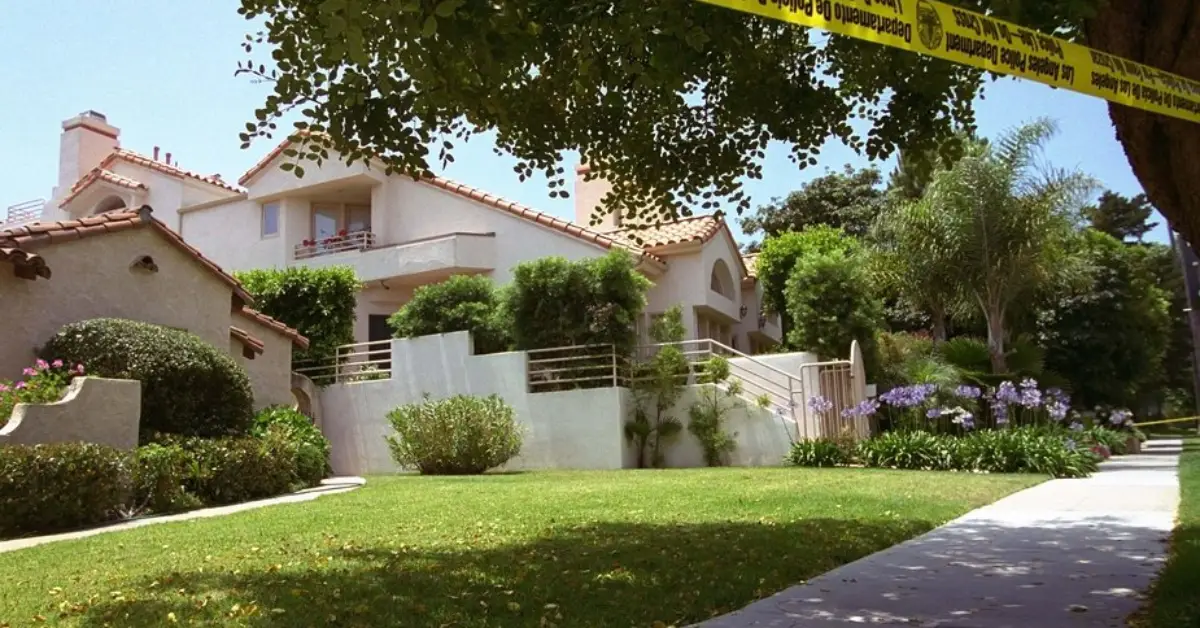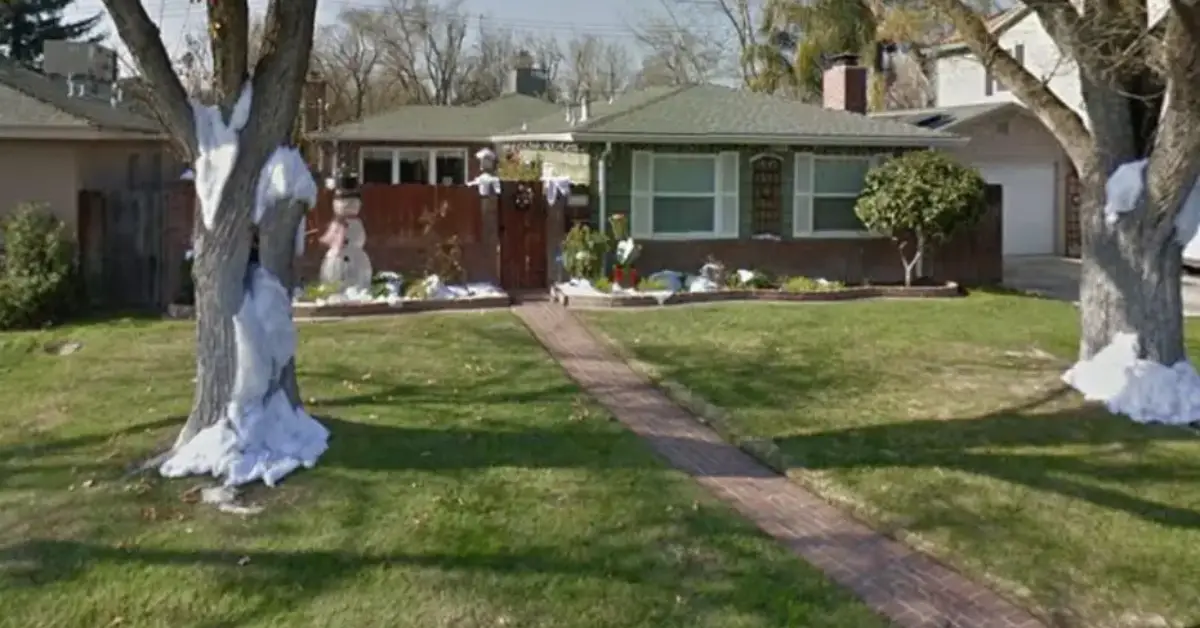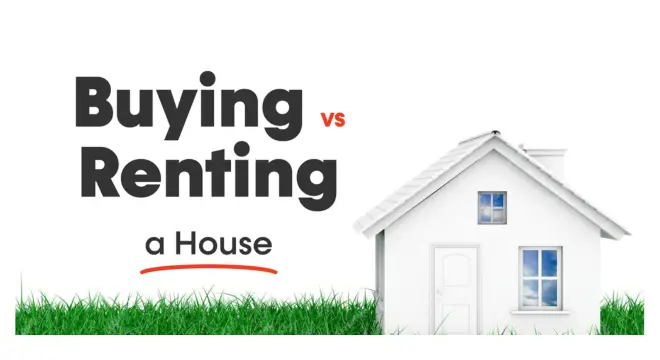Living in a Murder House: Why Some Buyers Are Drawn to Homes With Violent Histories
When I first heard about people buying homes where brutal murders occurred, I was taken aback. It seemed counterintuitive—why would anyone want to live in a place that’s been the site of something so violent and tragic? But then, as I dug deeper, it became clear that there’s more to this than just morbid curiosity. There’s something fascinating, almost magnetic, about these homes. Whether it’s the allure of the dark past or the potential for a bargain, people are drawn to these properties for reasons that go beyond the obvious. And trust me, it’s not as rare as you might think.
In this article, I’m going to explore why buyers still flock to these homes with such disturbing histories. From psychological factors to market dynamics, we’ll dive into the strange appeal these houses hold—and why, despite the gruesome pasts, they’re often seen as a worthwhile investment.
The Allure of Murder Houses: A Paradox of Attraction

Have you ever wondered why some people are drawn to homes with dark histories, like those where brutal crimes were committed? It seems like a strange paradox—living in a place where something horrific happened—but there’s more to it than just fascination. There’s an undeniable allure these homes hold, a kind of magnetic pull that goes beyond morbid curiosity.
For many, it’s not about wanting to relive the horror or “haunt” the past—it’s something deeper. Our attraction to these homes is tied to psychological and cultural factors that often go unnoticed.
Let’s break it down a bit.
- The Human Fascination with True Crime: You’ve probably seen true crime documentaries or listened to podcasts that delve into horrific events. Something about these stories pulls us in. Why? It’s the curiosity to understand the human mind, to explore why people commit such acts, and to feel a little closer to the darkest parts of society. It’s not about desiring the darkness, but about understanding it. For some, buying a “murder house” is a way of immersing themselves in this macabre curiosity without the danger.
- Morbid Curiosity: There’s a psychological phenomenon called “morbid curiosity” that explains this fascination. Studies have shown that people are naturally curious about dark, taboo topics, even if they don’t wish to directly experience them. It’s like watching a scary movie or reading about a crime scene—it’s thrilling without the actual risk. People who buy these homes often do so because they want to explore the mysteries surrounding the property without facing the trauma.
- Cultural Fascination with Infamous Houses: We’ve seen it in movies, TV shows, and news stories: “haunted” houses, infamous crime scenes, and properties with dark pasts. These cultural narratives shape how we view these properties. What was once a crime scene becomes a point of interest, even a part of popular culture. Think about the haunted house genre in films or the growing number of online discussions about true crime properties. The more attention they get, the more their mystique grows.
So, why would you be drawn to a home with such a history? It’s that strange combination of fear, curiosity, and thrill. It’s about confronting the unknown, understanding something that feels out of reach, and perhaps even gaining a sense of empowerment. After all, living in a house with a brutal past doesn’t mean you’re living in the past—it means you’re controlling the narrative, owning the space, and finding value in something others might deem worthless.
To dive deeper into the psychological reasons behind our interest in the macabre, you can read this article on Psychology Today.
So, the next time you hear about a “murder house” being up for sale, remember: it’s not just about the dark past—it’s the human desire to understand, to explore, and sometimes even to own a piece of history.
Real Estate Value and the Impact of a Violent Past
When you’re considering buying a house with a dark past—say, a home where a murder occurred—it’s easy to wonder what kind of financial impact it could have on the property’s value. The reality might surprise you. The truth is, a violent history can affect a property’s market value in both negative and positive ways, depending on several factors.
Let’s break it down:
- Lowering Market Value: The first thing you need to understand is that, generally, a violent past can make it harder to sell a property. Most buyers will avoid these homes due to the stigma associated with them. This can directly lower the price, as people are often unwilling to live in a place where something traumatic took place. Whether it’s due to fear, cultural taboos, or simply an aversion to the house’s history, it’s a challenge to find buyers willing to pay full market price.
- Increased Appeal for the Right Buyer: On the flip side, certain buyers—those with a strong interest in true crime or morbid curiosity—may be willing to pay more for a home with a violent history. For these individuals, the property’s dark past might actually add an element of intrigue or even exclusivity, which they find valuable. Some may even view it as an opportunity to own a piece of history, particularly if the home has been the site of a high-profile crime.
- How the Market Reacts Over Time: Interestingly, over time, some homes with a violent history can see their values increase, especially if the property is in a prime location or has historical significance outside of its past crime. The stigma might fade as time passes, and what was once a significant deterrent to buyers becomes a lesser concern. You can read more about these changes in New Hampshire’s new housing law. As long as the home is well-maintained and any legal issues are cleared up, the market might eventually view it as just another property.
You can learn more about how homicides impact property values in this U.S. News & World Report article: How Homicide Affects Property Values.
Understanding these financial implications is critical. Buying a murder house isn’t just about the price tag—it’s about understanding the long-term financial risks and potential rewards. So, whether you’re considering a purchase or just curious, keep in mind that the price you pay today might not reflect the true cost or value of the home down the road.
Legal and Ethical Considerations in Buying a Murder House

When you’re purchasing a house with a gruesome history, the legal aspects come into play in ways that many buyers don’t initially consider. Whether it’s about disclosures, stigmatized properties, or buyer protection, there are several important factors to understand before making an offer.
Disclosure laws are critical when purchasing a house with a violent history. For instance, in California, it’s important to disclose any deaths that occurred in the property to avoid potential lawsuits. To understand the full legal ramifications, check out our detailed guide on why you must disclose deaths in your house.
Let’s take a look at the main legal and ethical issues:
- Disclosure Laws: In many states, sellers are required to disclose any significant events that have occurred on the property, including violent crimes like murders. However, the requirements for disclosure vary from state to state. For example, in some places, a murder might not need to be disclosed if it occurred years ago, while in others, it’s mandatory. Understanding these laws is crucial to making an informed decision. If a seller fails to disclose a violent past and you find out later, it could lead to serious legal issues.
- Stigmatized Properties: Homes with a violent history are often considered “stigmatized properties.” This stigma can significantly impact the transaction process, not only lowering the home’s value but also affecting its saleability. Some buyers might be reluctant to buy a property with a reputation, even if the house has been renovated or the crime occurred long ago. Ethically, sellers should be upfront about any such history, while buyers should be diligent in researching the property’s past to avoid unpleasant surprises.
- Buyer Protections: In many cases, buyers can take steps to protect themselves legally when purchasing a home with a violent past. These might include specific contractual clauses about disclosures or an agreement on the price if the crime is disclosed after the offer is made. If you’re seriously considering a house with a dark history, it’s always wise to consult with a real estate attorney to ensure you’re not overlooking any critical details.
For more insight into how murder disclosures affect the home-buying process, check out this Realtor.com guide on murder disclosures.
Navigating the legal and ethical complexities of buying a murder house isn’t easy. It requires a clear understanding of the law, and a careful examination of the property’s past. Always make sure you’re fully informed before moving forward with such a purchase.
How Cultural Narratives Influence Home Buyers’ Decisions
Ever noticed how media, movies, and TV shows like American Horror Story or True Crime podcasts have a way of glorifying properties with dark histories? These cultural narratives play a massive role in shaping how we perceive homes with tragic pasts. The more we see these properties in shows or hear about them in podcasts, the more they start to feel like a unique, even desirable, experience.
Here’s why this happens:
- Popular Culture’s Role: Films and TV shows have long romanticized the idea of “haunted” or “infamous” homes. American Horror Story is a perfect example, where the house becomes a character in itself, brimming with dark secrets and mysterious allure. The rise of True Crime podcasts has also fueled interest in homes where real-life events took place. These narratives make the idea of living in a “murder house” feel like an adventure or a rare opportunity—much more than just a place to live.
- Cultural Conditioning: Over time, these stories shape our collective consciousness. We’re conditioned to see homes with a dark past as intriguing or even thrilling. It’s not just about the house itself; it’s about what it represents: a connection to a story, a piece of history, and sometimes even a connection to the supernatural. For many, this makes buying such properties an exciting, emotionally charged decision.
- The Appeal of the Unique: What’s more enticing than owning something with a story? Homes that have been the setting for a notorious crime or event carry an undeniable mystique. Media outlets often present these homes as valuable, not because of their past, but because of their story. The idea that you can own a piece of that history is captivating for a specific group of buyers.
Ultimately, media and pop culture have not only normalized but in some ways glamorized the idea of living in a house with a dark past. And for some buyers, this cultural fascination is enough to drive their decision to purchase.
Common Buyer Profiles: Who is Willing to Live in a Murder House?

When it comes to buying homes with dark pasts, it’s important to understand the types of buyers who are drawn to these properties. It’s not the average homebuyer looking for a suburban family home—there are specific motivations driving this market. Let’s take a look at some common buyer profiles:
- The Thrill-Seeker: For some, the attraction is all about the thrill. They’re fascinated by the idea of living in a property that has a chilling backstory. These buyers are often motivated by the desire to confront the unknown, or they may simply want a piece of history. The darker the past, the more intriguing the house becomes.
- The Investor: Some buyers see these properties as opportunities to capitalize on the stigma. They believe they can purchase the property for a low price, renovate it, and flip it for a profit. The challenge lies in overcoming the market’s resistance to homes with such a history. For these investors, it’s about understanding the market dynamics and knowing how to rebrand the property.
- The Collector of Unique Homes: There’s a subset of buyers who are drawn to unique, historical properties—whether it’s for their architectural value or their infamous past. These buyers might have an interest in history, architecture, or even the paranormal, and they see a home with a violent past as a rare find.
- The Risk-Taker: Lastly, there are those who simply enjoy taking risks. These buyers are often thrill-seekers who enjoy the challenge of navigating the complexities of owning a stigmatized property. The sense of ownership and control over something deemed “unwanted” can be empowering.
These profiles show that while most people might steer clear of homes with a violent history, there are distinct groups who view these properties as unique opportunities. It’s about understanding the buyer’s psychology and the motivations driving their decision.
How to Make Sure You’re Not Getting More Than You Bargained For
Thinking about purchasing a home with a dark history? It’s not a decision to make lightly. The idea of owning a property with a violent past might be tempting, but it’s essential to do your homework. Here’s how you can ensure you’re making an informed decision:
- Research the Property’s History: You need to know what you’re getting into. Check public records, speak to neighbors, and look up news reports. The more you know about the property’s past, the better you’ll be able to assess the risks involved.
- Understand the Financial Implications: As we’ve already discussed, homes with dark histories may be priced lower, but that doesn’t mean they’re a bargain. Factor in the potential difficulty of reselling the property, the cost of any necessary repairs, and how the stigma might affect your investment in the long term.
- Consult Experts: When buying a house with such a past, it’s wise to consult with a real estate lawyer to understand your rights. An attorney can help you navigate disclosure laws and ensure you don’t end up with any legal surprises. It’s also a good idea to work with a home inspector who can thoroughly check for any issues that might arise from the property’s history, like lingering damage or structural concerns. Learn more about the new protections in our article on Trump’s new law to protect homebuyers from lead hazards.
- Consider the Emotional Impact: While some buyers are drawn to these properties for the thrill or uniqueness, it’s important to think about how the dark past will affect your everyday life. Will it be something that haunts you? Could it lead to discomfort for your family or visitors? It’s a question you’ll need to answer honestly before making the purchase.
By following these practical steps, you can protect yourself from buying a home that might end up being more trouble than it’s worth.
The Future of Murder Houses in the Real Estate Market
As strange as it may seem, properties with a violent past aren’t going anywhere. In fact, with increasing interest in true crime and cultural fascination with notorious homes, we might even see this niche market grow in the future. But what does the future hold for these homes?
- A Growing Trend?: As more people become interested in dark histories, there’s a possibility that these properties may become more popular, especially among collectors, investors, and those drawn to unique homes. Media’s fascination with crime stories could lead to a broader market for these homes, particularly in areas with rich histories or infamous events.
- Decreasing Stigma Over Time: While stigma can reduce the appeal of such properties in the short term, over the long run, the market may shift. As time passes and new buyers emerge, these homes may become seen as quirky, historic, or even desirable for their uniqueness. The more stories that are told about these homes, the more they may gain cultural value.
- Potential Legal Changes: In the future, we could see changes in property laws related to disclosures or stigmatized properties. As the market for these homes evolves, there may be more transparency or clearer guidelines on how such properties are treated legally.
Ultimately, the future of murder houses in the real estate market will depend on cultural, legal, and financial factors. While it’s impossible to predict exactly where this trend will go, it’s clear that there’s a growing interest in these properties, and the market may continue to shift as attitudes evolve.
Conclusion: The Morbid Curiosity That Powers a Real Estate Trend
So, what does it all come down to? While buying a home with a brutal past might seem unusual or even unsettling to some, the reality is that this trend is here to stay. Our cultural fascination with true crime, the allure of owning a piece of history, and the psychological pull of morbid curiosity all play a role in driving the popularity of these homes. For some, it’s a way to confront fear or curiosity head-on, while for others, it’s a unique opportunity to own a property with a dark yet intriguing story.
The market for homes with violent histories isn’t shrinking—it’s evolving. Over time, we’ll likely see more people drawn to these properties for their novelty, their connection to real-life stories, and even their investment potential. Whether you view it as a fascinating journey or a risky financial move, there’s no denying that these homes hold a unique place in real estate.
But what do you think? Would you ever buy a house with a violent past, or do you find the idea too unsettling? Share your thoughts or experiences in the comments below—I’d love to hear your perspective!
And if you’re looking for more insights on unique real estate trends or tips on purchasing homes, visit us at Build Like New for expert advice and resources to help you make informed decisions.
Disclaimer: The information provided in this article is for informational purposes only and does not constitute legal or financial advice. Always consult with a qualified real estate professional or attorney before making decisions regarding properties with a dark past.


